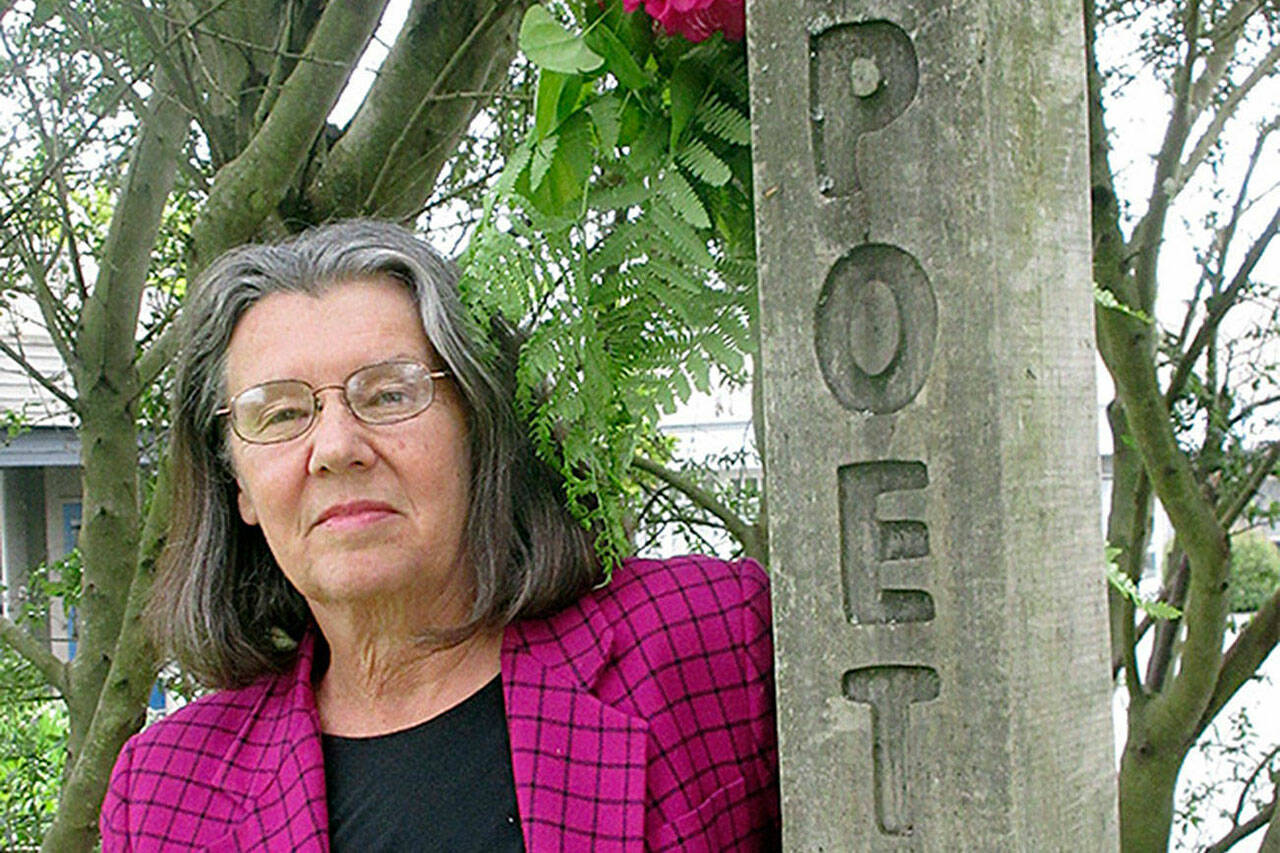In her latest volume, “Back Cut,” Ann Spiers probes the depths and rhythms of a time-worn marriage.
In the introduction to the book, Spiers — Vashon’s inaugural Poet Laureate — cuts straight to the point: “This is a love story.” But it’s not just any love story. It’s a story of love as an exercise in endurance and fortitude. It’s a book about how long love gets embedded in you, like a clam in sand.
The book is structured as a dialogue, alternating between the speaking voices of a wife and husband who live at the edge of the world — the Washington coast in the years after WWII. He is haunted by the war; she is filled with unfulfilled desire. They are like twin firs whose trunks have been conjoined at the base: inextricably connected, slowly diverging.
We bear witness to the late years of their lives as they confront disasters both natural and personal, and as their lives unfold in all their marvelous banality: digging for clams, buttoning jackets, harvesting potatoes, making banana bread, walking the beach, and walking it again. There is a kind of magic in these everyday rituals, a groundedness.
As with much of Spiers’s considerable body of work, the physical setting of “Back Cut” is a character unto itself. The imagery is exquisitely vivid throughout: “pucks of beach and fresh scat purple / with fruit and old clams gaping with stink.” These phrases and many others like them transport us to the harsh majesty of the Washington coast. As you read this book, you feel the wind and hear the waves and smell the damp sand. It is a master class in sensory immersion.
Though the backbone of the book is, ostensibly, the love story at its center, it is Spiers’s supple, crisp verse that holds the volume together. Her finely tuned ear makes “Back Cut” truly a treat to read. These lines from “Wife—Methuselah’s Beard,” the opening poem of the book, give a sense of what that sounds like:
we roll through woods
hung with Methuselah’s Beard
a lichen
so proficient
it eats the air
I say I don’t mind being here
the smell of cedar
holding me
Listen to the way that “cedar” echoes “here, echoes air,” hear “lichen” in “proficient,” and “woods” in “Beard.” This is what the graduate students call “mimetic rhyme” — that is, rhyme that mimes the sense it is trying to convey. Halting, tentative, never quite fully resolved. Throughout the volume, Spiers rewards our attention in this way. (Keep your eye out for the one blatantly perfect rhyme!)
I read this book over the course of three ferry rides. It was a welcome respite from the usual scrolling and swiping. So consider putting down your phone for a while and picking up this book. You’ll be glad you did.
Jesse Edward Johnson is the author of the novels “Yearbook” and “The King of Nothing Much,” both published by Paul Dry Books.


